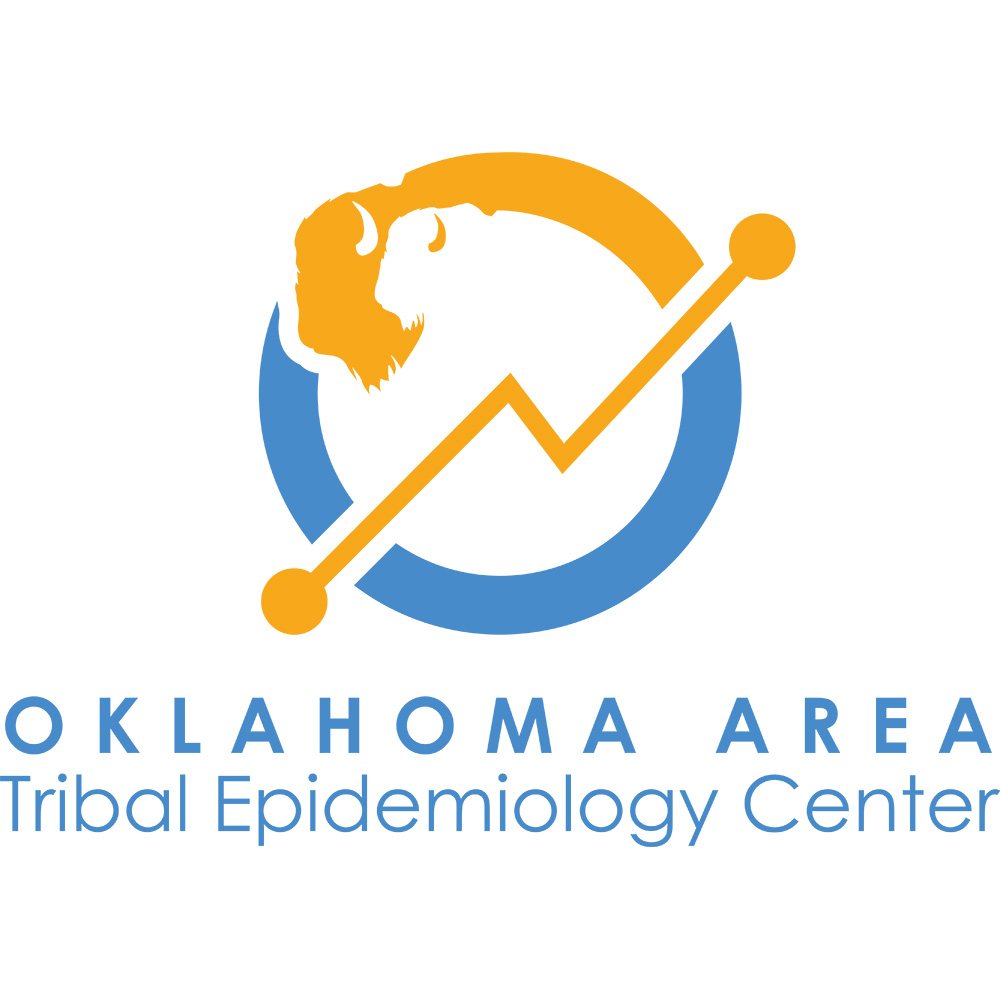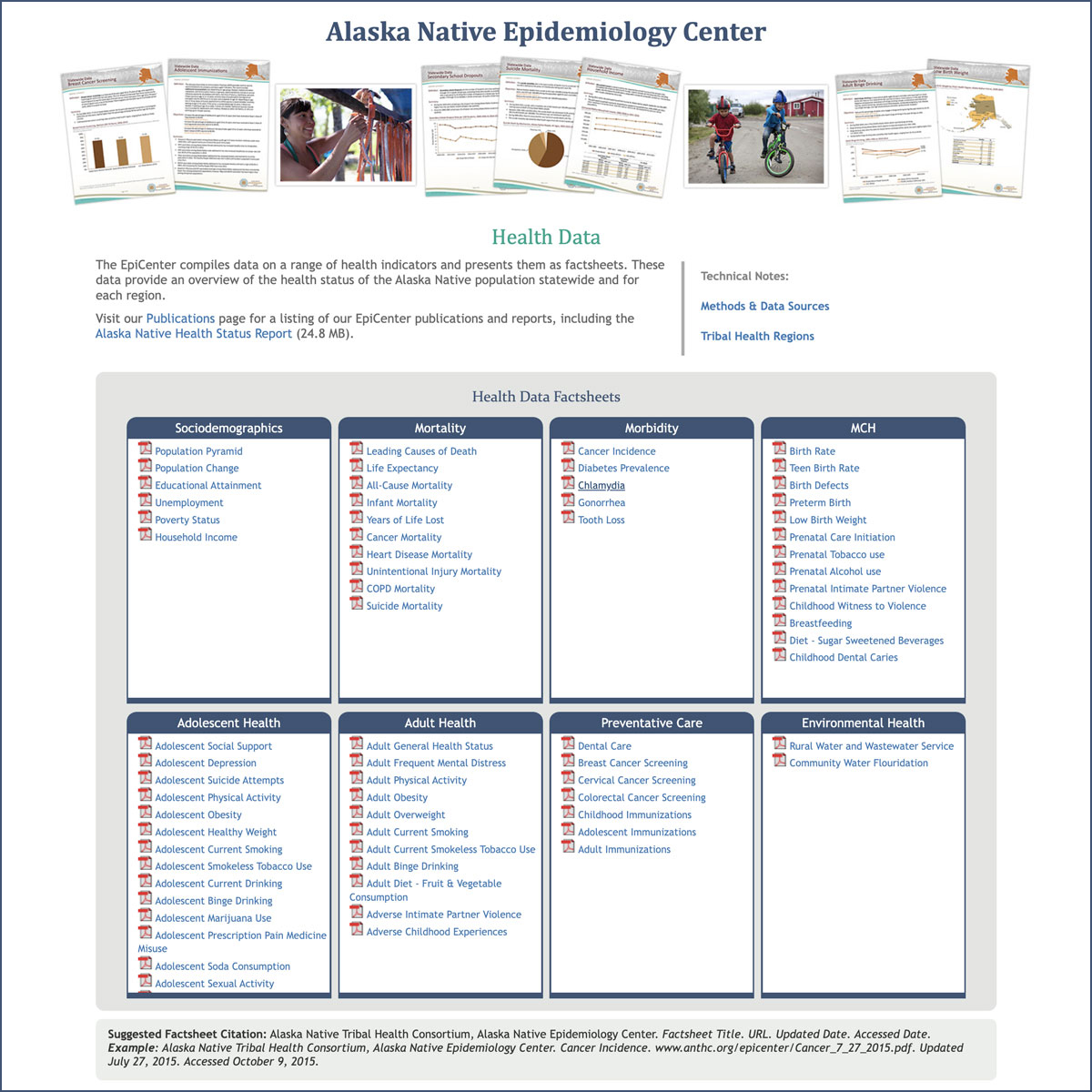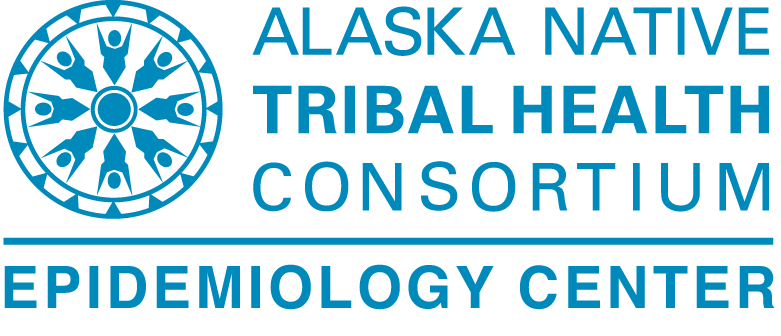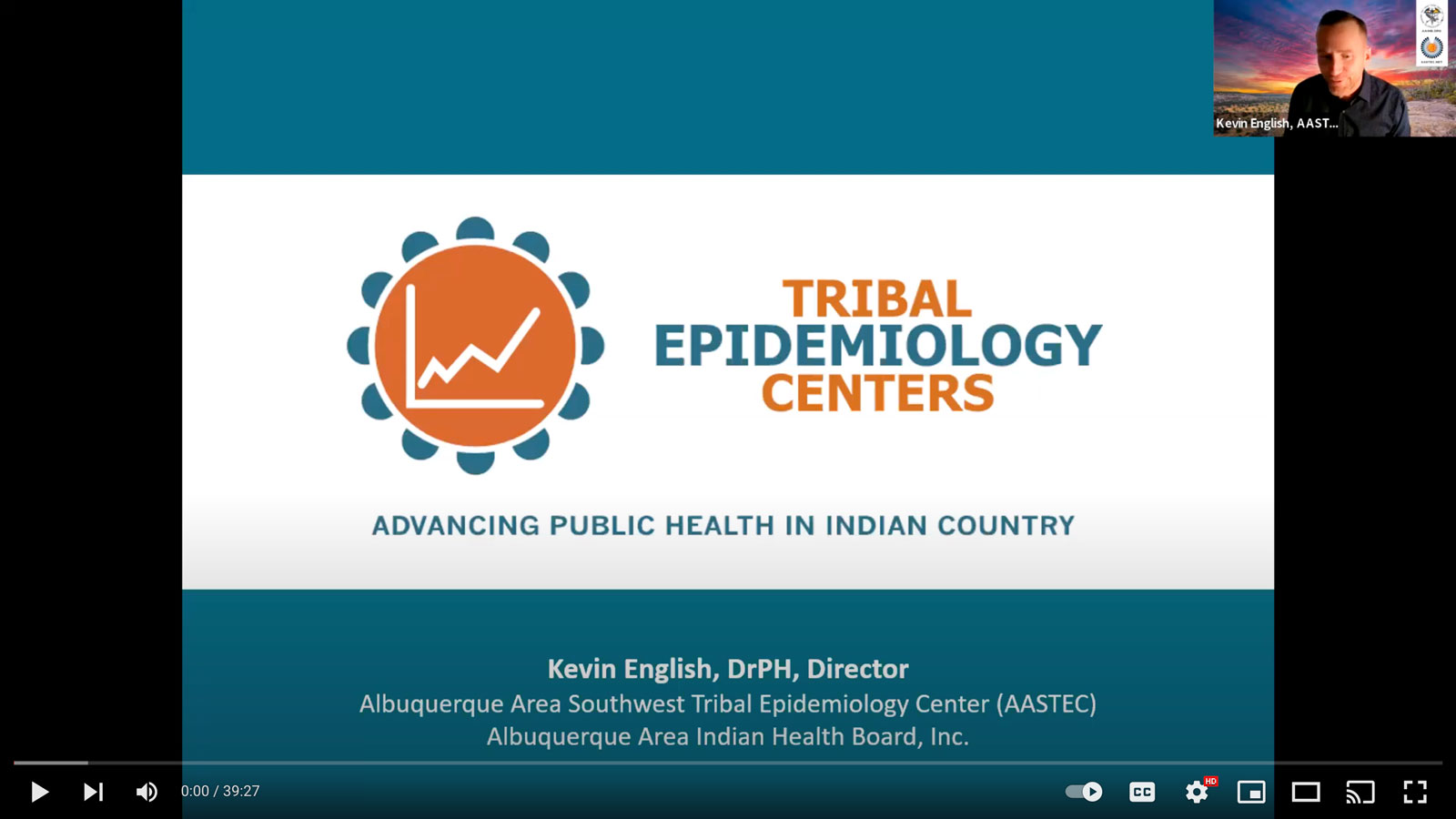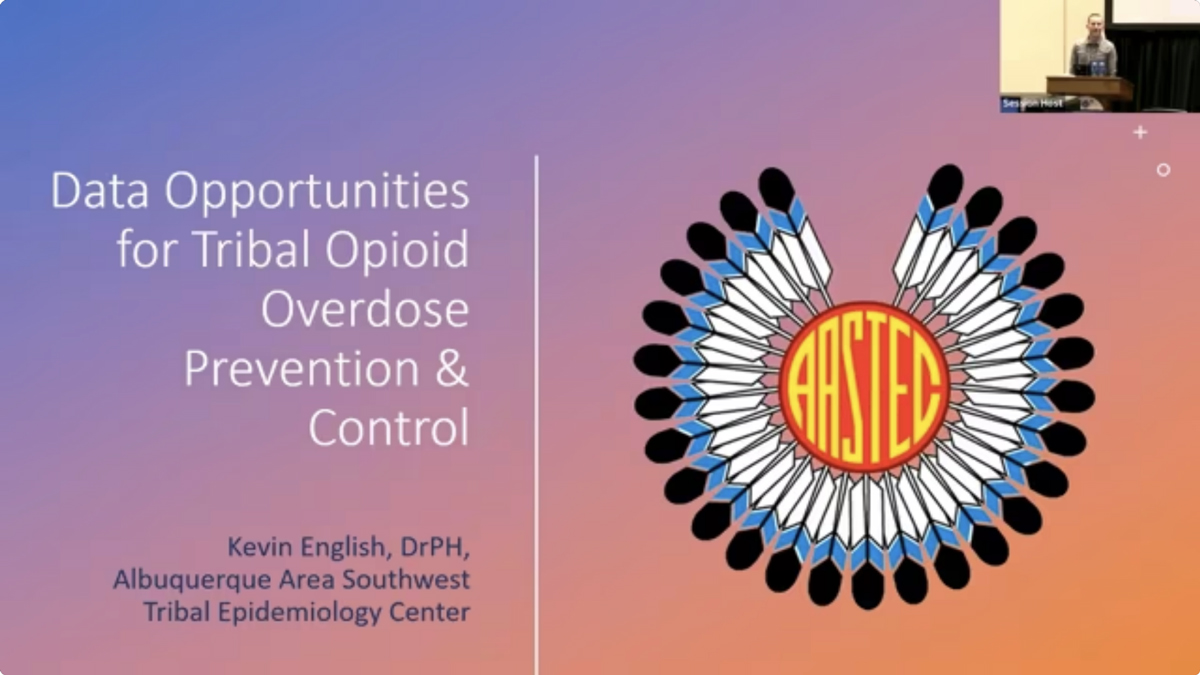
Seven Directions is immensely grateful for all of the knowledge shared by participating TEC Directors and staff. See some of the conference highlights below!
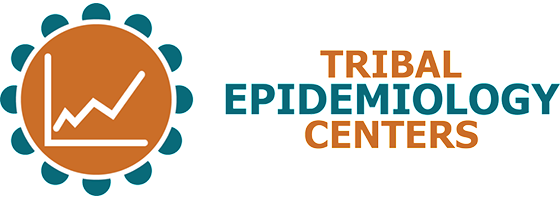
For more information about each of the 12 TECs, visit https://tribalepicenters.org/12-tecs/.
6.28.23 – Data Opportunities for Tribal Opioid Overdose Prevention & Control from Seven Directions indigenousphi.
Dr. Kevin English, Director of the Albuquerque Area Southwest Tribal Epidemiology Center, hosted a breakout session on June 28, presenting “Data Opportunities for Tribal Opioid Overdose Prevention & Control.” English shared information about currently available data sources that can be leveraged to characterize the burden of opioids among American Indian and Alaska Native populations, including opportunities for opioid-related data and surveillance enhancement and primary data collection.
Michael Mudgett, Substance Use Epidemiologist at the Northwest Portland Area Indian Health Board, hosted a breakout session on June 28, presenting “Improving AI/AN Overdose Data Through Data Linkages.” In this presentation, Mudgett described how NPAIHB has utilized data linkages to correct racial misclassification and address the improvement of drug overdose mortality data among American Indian and Alaska Native people in Washington, Oregon, and Idaho vital statistics databases, respectively.
Tim Collins, Senior Epidemiologist at the Alaska Native Epidemiology Center, led an experiential learning session on June 29, titled, “Opioids and the Brain: How Augmented Reality can inform treatment and build health literacy.” In this session, participants had the opportunity to wear a Hololens2 headset to experience interactive holograms that illustrate the potential effects of opioid use on the brain and how treatment can help. Collins also discussed the rationale for using augmented reality in patient education, special considerations for substance use disorders, and limitations of the technology.


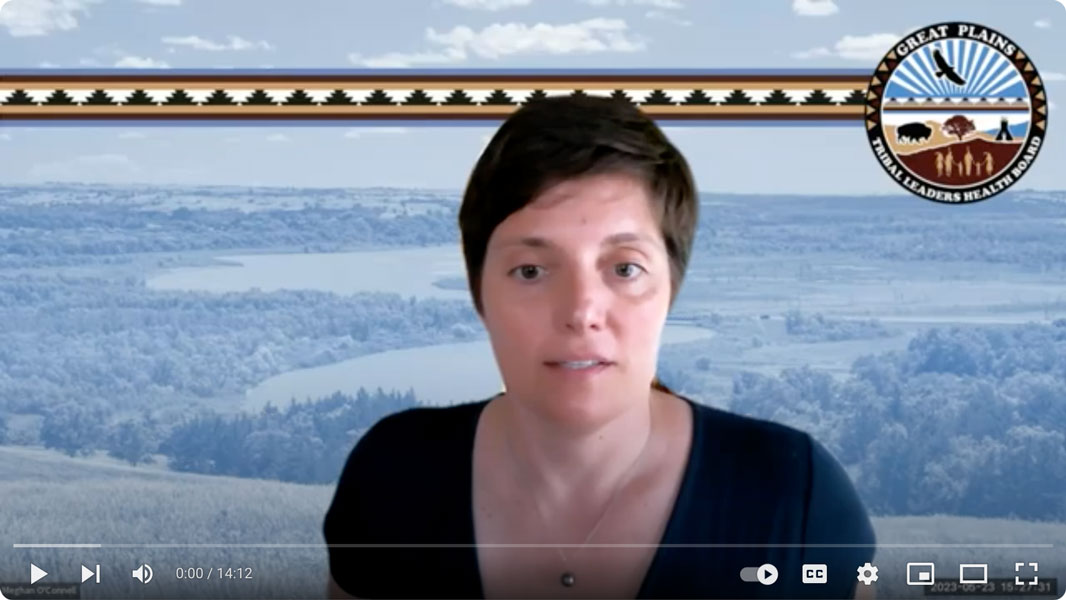
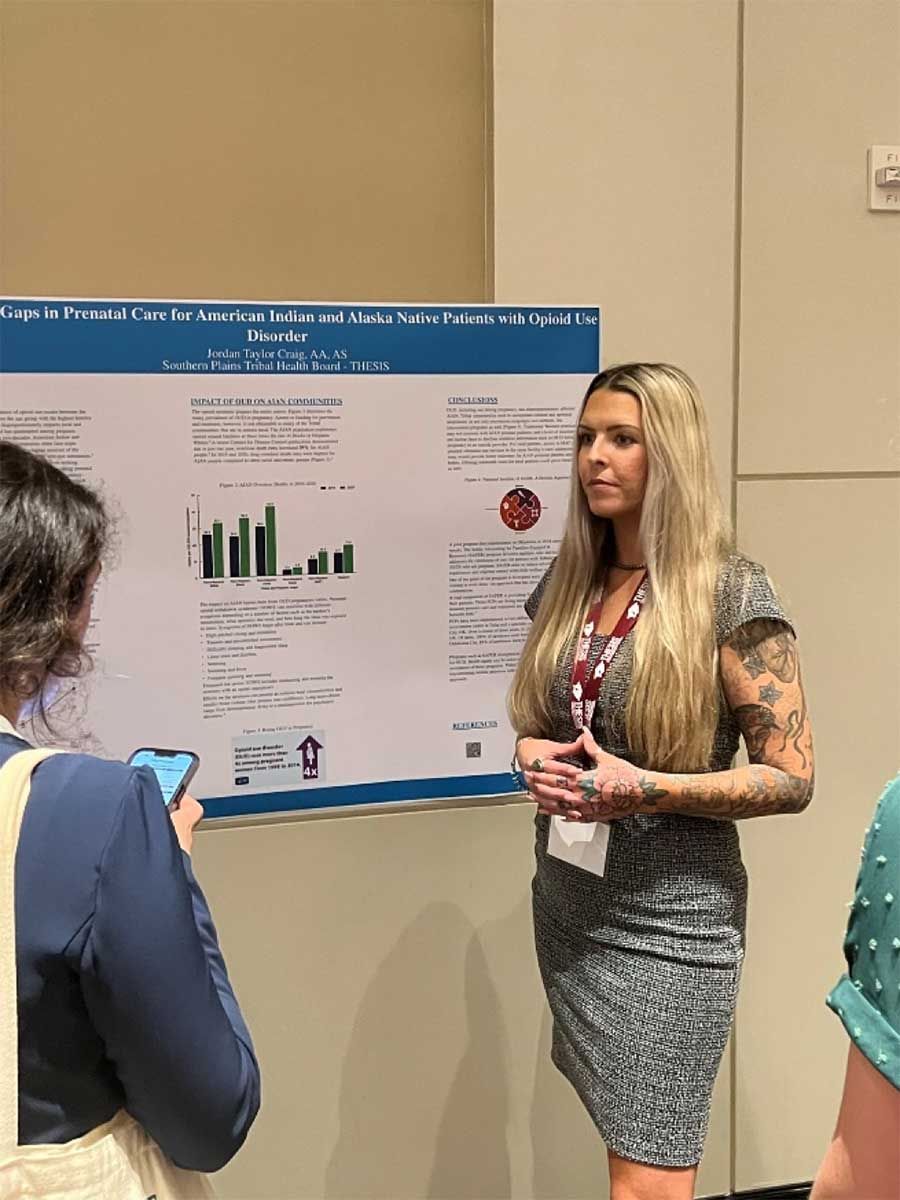
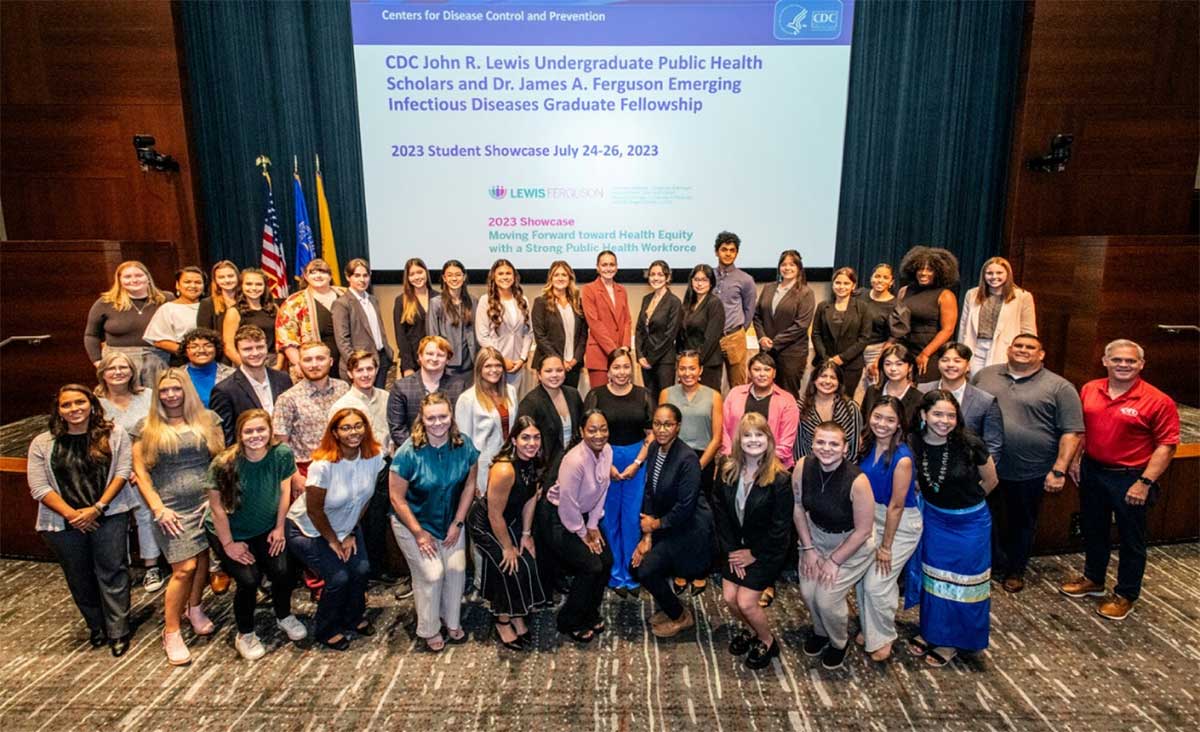 THESIS intern students at the CDC Showcase in Atlanta, Georgia.
THESIS intern students at the CDC Showcase in Atlanta, Georgia.
